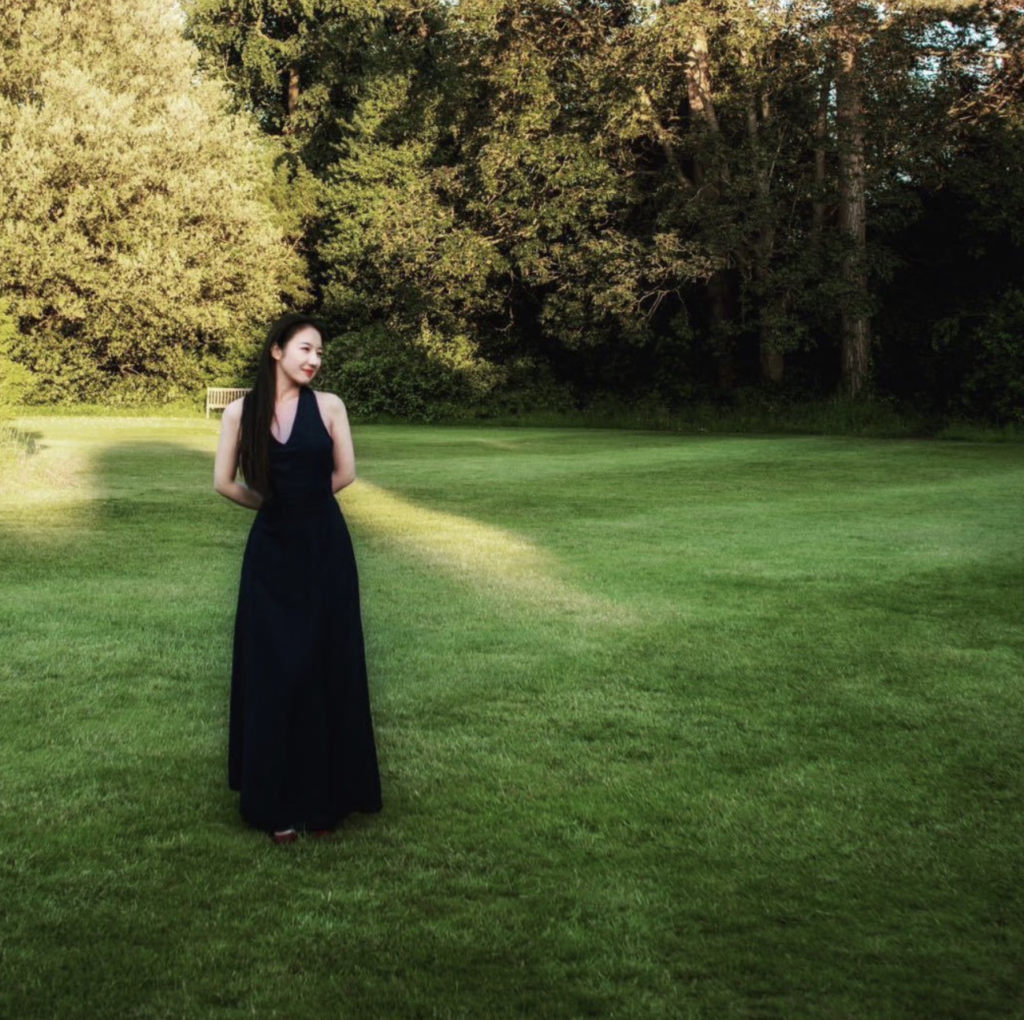童莹
born in Cixi, City of Ningbo, Zhejiang Province, China

Love green space
My profile page of the Faculty of History, University of Oxford:
https://www.history.ox.ac.uk/people/dr-ying-tong
My current project explores why and how middle-aged and older women in southeastern China have increasingly participated in popular religious rituals over the past decade (2010–present). Against the backdrop of a widespread traditional cultural revival, supported by both local societies and government initiatives, religious practices – particularly those rooted in Buddhist, Taoist, and folk traditions – have become increasingly important to many women’s daily lives in both rural and urban areas such as Ningbo and Hangzhou. This is evident in a variety of practices, from collective scripture chanting and the creation of ritual symbols (“vei” and “die” in the local dialect) to household ceremonies such as inviting Bodhisattvas into the home, candle-lighting donation rituals, and regular temple worship. While these activities do not always reinforce doctrinal Buddhist or Taoist beliefs on life and death, they reveal a growing secular utility and a potential avenue for elderly care : )
Most of the women involved were born in the 1950s and 1960s, having experienced both the early PRC era and the rapid social transformations of the Reform period. Their engagement in these rituals cannot be understood in isolation, as it is shaped by their early-life experiences, shifting social structures, and evolving personal needs. Beyond their personal motivations, I also explore how their husbands’ often ambivalent attitudes toward religion and superstition influence the dynamics of their intimate communities. At the same time, generational differences with their children – who have often moved away for work, embraced modern livelihoods, and adopted different worldviews – add further complexity to the reasons behind these women’s ritual practices. Through fieldwork combining ritual observation and oral history interviews, I examine the personal and social meanings behind these practices. Beyond spiritual devotion, these rituals provide spaces for socialisation, emotional healing, post-retirement routine building, and even small-scale income generation through ritual services.
My doctoral research, Heroines, Us, and Intimate Ties: Chinese Women Warriors’ Self-Fashioning during the War of Resistance against Japanese Aggression (1937–1945), examines how women in wartime China constructed and solidified their self-images as different types of warriors. These women operated across diverse settings, including public mobilisation, frontline service, secret operations, and rural reform. Some were affiliated with the Chinese Communist Party (CCP) or the Kuomintang (KMT), while others navigated between, beyond, or outside these political factions. My work highlights a spectrum of heroic archetypes, including chivalrous and romantic warriors, practical labour providers, unseen heroes in disguise, and those embodying “collective heroism” in contrast to “individual heroism.”
To capture the complexity of their self-fashioning, I move beyond conventional analytical frameworks of patriotism, feminism, or party loyalty. Instead, I focus on the intimate ties these women forged with the communities they served or worked alongside. These connections – whether familial (both real and fictive kinship), romantic, imagined bonds with their audience, or fluid forms of comradeship – shaped how they navigated their roles, engaged with their missions, and perceived their own heroism. I argue that these relationships were not just peripheral but pivotal, influencing their work methods, gender performances, recognition of merit, and political allegiances. My study offers a fresh perspective on these women as emotional and moral agents while contributing to broader discussions on revolutionary subjectivities and the interpersonal mechanisms underpinning them.
I majored in Modern Chinese Literature at Peking University (2017-2020), where I focused on the social engagement of prominent Chinese intellectuals in the early 20th century.
Yes, I also write stories!
My literary journey began with my debut story, Prosper with the East Wind, published in Shanghai Literature in 2018. Since then, I have written stories exploring social and familial transformations since the 1990s, the decade I was born in. My works often centre on the resilience of individuals navigating personal and societal challenges, addressing themes such as generational conflicts and the disappearance of obsolete professions. Beyond China, my storytelling ventures into broader topics, including life during the pandemic, tribal cultures, and juvenile delinquency. Since 2023, I have slowed my writing pace. Immersing myself in historical research during my doctoral studies and undergoing a personal transformation through self-care work have given me new perspectives on these topics. It takes time to finalise some of the previous drafts, but the proces is quite therapeutic. : )